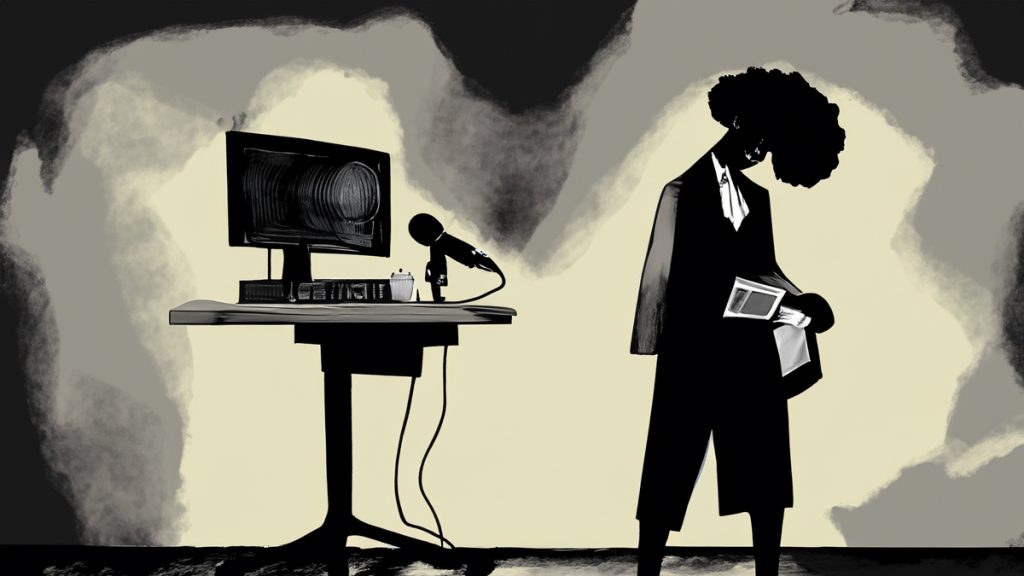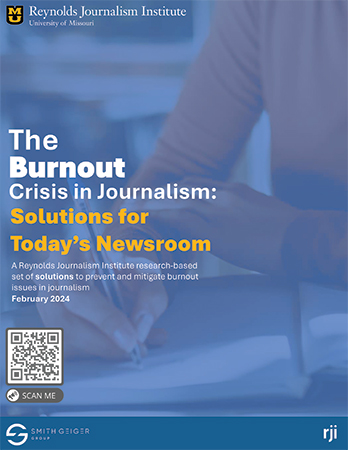

The Burnout Crisis in Journalism: Solutions for Today’s Newsroom
Addressing burnout in journalism means flexible shifts, more supportive culture — results of large-scale survey from RJI and SmithGeiger
The Reynolds Journalism Institute (RJI) at the Missouri School of Journalism, in partnership with research firm SmithGeiger, today released the results of one of the largest surveys ever conducted on burnout in the journalism industry. A white paper, based on responses from 1,140 active and former journalists, is available here, and the data is available to researchers nationwide who can contact rji@rjionline.org to learn more.
The Burnout Crisis in Journalism: Solutions for Today’s Newsroom
A Reynolds Journalism Institute research-based set of solutions to prevent and mitigate burnout issues in journalism.
Next steps
Workshop
We are planning a summer/fall workshop for a cohort of television stations interested in experimenting with flexible hours and a 4-day work week. The workshop will be conducted in conjunction with a consulting firm, 4-day Week Global, that delivers customized plans to help industries, like hospitals, police departments, to implement a 4-day work week.
More research
We are preparing deeper dives into the results. Our schedule:
- What is the impact of burnout on TV newsrooms? July
- What is the relationship between burnout and gender and marginalized identities? August
- How does burnout differ based on years of experience in the newsroom? September
- How do managers and journalists see burnout? October
Educational module
We are creating an educational module about the results for college journalism programs to use to increase awareness of potential solutions to burnout and prepare the journalists of the future on how to deal with the issue.
Related stories
For more information, follow our series Addressing Burnout, featuring stories about RJI and SmithGeiger’s research, as well as stories by columnists and fellows.
